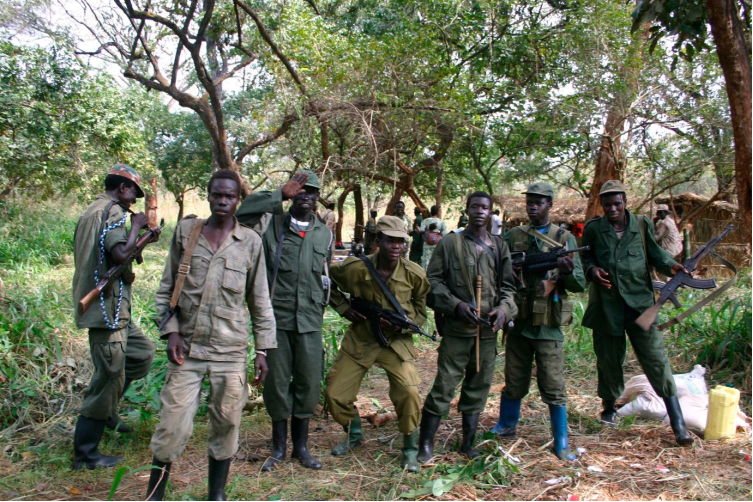
Posted On : Nov 29 2020
The Lord`s Resistance Army (LRA): A Dark Legacy of Violence and Abduction
The Lord`s Resistance Army (LRA), a brutal and notorious rebel group originating in Uganda, has left an indelible mark on the history of conflict in Central Africa.

Led by the elusive Joseph Kony, the LRA's reign of terror has spanned decades, characterized by a disturbing blend of violence, abduction, and ideological fervor. This article delves into the origins, actions, and consequences of the LRA's existence.
Origins and Ideology:
Founded in the late 1980s, the LRA began as a rebel movement ostensibly fighting to overthrow the Ugandan government. However, over time, the group's initial political goals became increasingly intertwined with a distorted and extremist interpretation of Christianity. Joseph Kony, the enigmatic leader, claimed to receive divine guidance and used religious rhetoric to legitimize the group's heinous actions.
Tactics of Terror:
The LRA's methods of warfare are synonymous with horror. The group is notorious for its mass abductions, particularly of children, who are subjected to indoctrination, forced labour, and acts of violence. The abducted children are often coerced into becoming child soldiers, forced to commit atrocities against their own communities. The LRA's brutal tactics include mutilation, rape, and murder, instilling a reign of terror in the areas it operates.
Impact on Communities:
The LRA's presence has had devastating consequences for the communities it targets. Entire villages have been uprooted and displaced, with families torn apart by abduction and violence. The psychological scars inflicted on survivors and witnesses are deep and lasting, leading to a cycle of trauma that is difficult to overcome.
International Outrage and Efforts:
The LRA's actions have drawn widespread international condemnation. Human rights organizations, governments, and regional bodies have worked to bring attention to the group's atrocities and alleviate the suffering of its victims. Advocacy campaigns have aimed to pressure governments to take action against the LRA and support affected communities.
Regional Dynamics:
The LRA's operations have extended beyond Uganda, with the group conducting raids in neighbouring countries such as Sudan, the Democratic Republic of Congo, and the Central African Republic. These cross-border activities have further complicated efforts to counter the group, as differing jurisdictions and logistical challenges impede coordinated responses.
Challenges in Eradicating the LRA:
Efforts to dismantle the LRA have faced numerous challenges. The group's ability to operate in remote and inaccessible regions, coupled with its adaptable tactics, has made it difficult to track and neutralize. Furthermore, the LRA's exploitation of social and economic vulnerabilities, as well as its use of child soldiers, adds layers of complexity to counterinsurgency efforts.
Prospects for the Future:
While the LRA's power has waned over the years, the group remains a destabilizing force in the region. Its leader, Joseph Kony, remains at large despite international efforts to capture him. The LRA's legacy of violence and suffering continues to cast a shadow over the affected communities, underscoring the urgent need for sustained efforts to address the lingering impact of its actions.
Conclusion:
The Lord's Resistance Army's reign of terror has left a painful legacy in Central Africa. Its brutal tactics, ideological distortions, and exploitation of vulnerable populations have inflicted immeasurable suffering on communities across multiple countries. The international community must continue to collaborate in efforts to eradicate the LRA's influence and provide support for affected individuals and regions. By addressing the root causes of the LRA's existence and working to heal the wounds it has caused, there is hope for a future free from the atrocities that have plagued the region for far too long.
No Comments Added




















